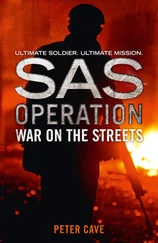“How good is their sound equipment?”
“Fair. They have hull-mounted and dipping sonars. Torpedoes, anti-ship rockets, and guns. Nasty little bastards. But they don’t maintain their equipment and they get lazy when nothing exciting ever happens. They don’t have much to do, now that the Amerikanskis don’t spy on us like they used to. During the Cold War they’d stick the noses of their Los Angeles-class boats into the Tuloma River delta and—”
“Kapitan, sonar. Sound contact bearing zero-five zero degrees!”
Litvanov reached for a kashtan microphone attached to the end of a coiled wire hanging from the overhead. “Fire Control, Kapitan. Range?”
The range had been generated from multiple bearings. “Under four thousand meters.”
Litvanov pushed away from the chart table and went forward from the CCP to poke his head into the sonar room, where a spike of noise on a green waterfall slowly worked its way down a sonar screen.
“Contact drifting east-southeast, Kapitan.” The senior sonarman, intent on tracking the contact, didn’t look up. “Light twin-screw beat—I’d say sixty turns.”
“Five knots,” Litvanov said. He tugged his nose and waited.
A minute later the sonarman looked up at Litvanov. “Contact moving abaft the beam. No change in speed.”
“Can you identify him?” Litvanov said.
The fire control computer searched its memory banks for a matching sound profile. “MPK patrol boat, Kapitan.”
Litvanov considered. The K-363 was more than ten minutes away from a planned course change to the northwest and into the Barents Sea. But now they had to sidestep the pesky patrol boat. “Come left ten degrees,” Litvanov ordered briskly.
“Come left ten degrees, aye,” from the helmsman.
Litvanov waited as the K-363 turned and settled on her new course. “Anything?”
“Contact diminishing, Kapitan.”
Veroshilov’s tongue flicked across dry lips. He followed the action and made manual course adjustments on the chart, which was updated automatically by a plotter stylus moving over an acetate overlay. He also kept track using information marked on the chart of how much water lay under the keel. A Fathometer sounding would confirm it but a ping bounced off the sea bottom would reveal their position.
“Hold this course for fifteen minutes,” Litvanov ordered, “then we’ll come back to our original base course. By then he may be gone.” He caught Zakayev’s eye. “What did I tell you?”
Zakayev turned his gaze on the girl. She looked composed yet intrigued by the utter complexity of the CCP. Like snakes, cables and wiring, some thick as a man’s arm, crawled over every available surface inside the hull. Men sat or stood facing control panels and consoles covered with red, green, and orange lights indicating the status of the submarine’s nuclear reactor, fire control system, weapons, countermeasures, and hull integrity. Other men sat in comfortable padded chairs while they manipulated the wheels and joysticks used to control the boat’s direction and attitude underwater. Throughout the entire compartment a bewildering forest of valves and levers sprouted from pipes and hydraulic lines running every which way, concocted, it seemed, by a team of plumbers gone mad.
Litvanov, arms folded, brow rutted in concentration, hovered near the periscope stand while he waited for a fresh report from sonar.
“All clear, Kapitan. Contact fading.”
Litvanov gave the order to resume their earlier course. A minute later he ordered, “Come to periscope depth.”
“Periscope depth, aye. Fore and aft up ten.”
The K-363 rose toward the surface.
Litvanov stood by at the night vision scope. He motioned up to the quartermaster of the watch. The quartermaster yanked the periscope lift handle and the heavy tube rose from its well in the deck. Litvanov slapped the scope’s training handles down as soon as they appeared above the stand. Crouched, eye pressed into the rubber buffer surrounding the ocular, he rose with the scope to a standing position. First he walked the scope around 360 degrees to check for intruders, then checked his swing on the bearing where the patrol boat had been reported by sonar, slowly moving abaft the starboard quarter. He wigwagged the scope left, right, left.
Nothing.
He searched dead astern. Clear there, too, except for a gray curtain that was a snow squall crawling seaward from Kil’din Island. Another 360-degree sweep. “All clear. Down periscope.”
Litvanov pushed away from the descending tube. “Come. Let’s have a drink.”
For several hours Jack Slaughter had sat in a sub basement room facing a bank of computers and monitors at the heart of the embassy’s communications center. Slaughter had entered the embassy voice mail system’s Stored Program Control through COMSEC–Communications Security—and retrieved Drummond’s cell phone message to Alex.
With the use of filters and modulation techniques, Slaughter had minimized many of the defects in the message caused by nulls and voids and signal fades. Scott and Alex listened through headphones to replay after replay, but only two phrases spoken by Drummond were made clear enough to understand: “I’m staying there” and “will return tomorrow.”
While Slaughter experimented, he gave Scott and Alex a running commentary on the complexity of multi path effects, echo elimination, and modulated signal parameters. He spun around in his swivel chair and said, “Try it now; see if it’s any better.”
Scott listened carefully, but Drummond’s voice, badly distorted by noise and signal fade, came through only marginally improved. “Any other ideas that might work?” he asked.
“Afraid not,” Slaughter said. “I’ve used all the tricks I have in my black bag. Cell transmissions from the north arc notoriously bad. Pity he didn’t use a satellite bounce. The Russian ground relay system has very long transmission paths that badly degrade signals.”
“What about his armored cell phone?” Scott said. “Why didn’t he use that?”
“Good question,” Slaughter said. “By the way, did you ever find it?”
“No.”
“Whoever stole it, it’s no good to them. It’s locked.”
Alex saw Scott’s disappointment. “Sorry, Jake, I thought for sure we were onto something.”
The phone at Slaughter’s workstation chirped. He answered, punched the hold button, and said, “It’s for you. Captain Scott. It’s Mr. Stretzlof.”
Scott and Alex found Chief of Mission Viktor Stretzlof waiting for them in a “bubble,” one of the embassy’s safe rooms on the second floor. He sat at the head of the long coffin-shaped mahogany conference table sipping a diet cola through a bendable straw. David Hoffman sat to Stretzlof’s left facing Scott and Alex, his face set in stone.
Without preamble Stretzlof said, “For your information, Captain Scott, the use of the embassy comm center is restricted to the sending and receiving of official embassy communications. It is not to be used for any other purpose.”
“Jack Slaughter helped me clear up some messaging Admiral Drummond sent to Dr. Thorne before he was murdered,” Scott said. “I felt it was important to know what he was trying to tell her.”
“General Radford gave me a rundown on your orders,” Stretzlof said gravely. He favored suspenders and starched shirts with white collars and cuffs and blue bodies that crackled when he moved as he did now, turning to Alex then back to Scott. “It seems you’ve blatantly disregarded them. Furthermore, you’ve involved Dr. Thorne in your adventures, which, as I understand from David, has taken her away from important duties at the embassy as well as in the field. You were told by General Radford to confine your work to the return of Rear Admiral Drummond’s remains and the security of his papers. Apparantly you’ve seen fit once again to expand your warrant.”
Читать дальше












